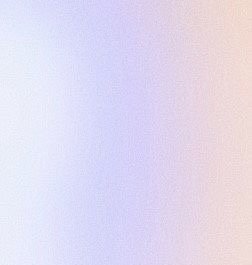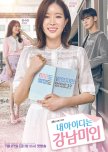This review may contain spoilers
My ID Is Gangnam Beauty is among the dramas that have stood out to me a lot,
notably since I'm a student and if it's South Korea or elsewhere, your attractiveness is
always a prominent concern. If you don't look outstanding in a way that other people look
at it like "Below-Average looking" and "Above-Average" you're likely to be watched by
people who either call you "Unattractive" or are just jealous of you. It is the most feminist
Korean drama I've seen; hands down to Gangnam Beauty, here's a thread of things.
Bullying, sexual assault, stalking, fat-shaming, women's objectification, and internal
misogyny are addressed. The show's primary focus is on beauty and self-worth.
An incredibly fantastic scene is when Kyungseok's mother, aka Ms. Na, tells him
that crying has nothing to do with gender. This drama is the first time I've seen the subject
of toxic masculinity touch on a Korean drama. Crying is okay, and say it more loudly. We
also see the mocking of a college girl with short hair that she's not woman enough. She
wants to confess to her crush, and her classmate advises her to alter her appearance.
She stands up bravely and cuts this idea off, and stays true to herself.
This K-drama does not give a negative light on the beauty industries. Protagonists
are also seen cheerfully using masks and make-up and dieting (healthy) to control weight.
It reflects on choice and self-love. What is normal and what is plastic is established as an
external entity. The emphasis is on the non-judgmental consideration of the decisions of
everyone else. If self-love is to be attained by therapeutic interventions, then it is deemed
as unquestionably acceptable.
It also encompasses us, along with Mi Rae, to uncover ourselves as ordinary
people, embrace ourselves, and continuously seek our passions. In my perspective, this
is one of the series wherein, for the first time, it discussed the subject of cosmetic surgery
a lot. In South Korea, such surgery is day-to-day. It is done against the relentless strain
that occurs in the physical image, not only to impress and please other people, but it is a
component that will assess your place in modern society as such. Furthermore, beauty
standards are often used to rate people and encapsulate one's self-esteem. South
Korea's intensive beauty standards are the product of various causes that have
collaborated to persuade women to reach for perfection in beauty, resulting in cosmetic
surgery. Cosmetic surgery is almost routine in a South Korean individual's life, but a
tremendous amount of respect is given to those who look 'naturally beautiful.' The
Gangnam Belt or the Beauty Belt is famous for its numerous privately-owned clinics for
reconstructive procedures and a hotbed for medical tourism.
Throughout the series, we will encounter the diverse views of physical appearance
and plastic surgery. Initially, you can perceive the feelings of inadequacy that the
protagonist demonstrates with her new face and a relentless quest for identification.
Some might assume this series has many people's superficial perspectives; however, as
the storyline unfolds, the characters continue to reveal their genuine flaws and strengths,
which could render you want to uncover with each segment of how well the story
concludes.
Overall, this Korean drama is worth watching as you would only not encounter
joyous, romantic, and hopeful moments, but the drama also talks about feminism,
equality, and society's beauty standards. Therefore, regardless of how pretty or horrible
a person is, people will talk about it. If you're cute, others will be envious of you, and they'll
mock you if they're ugly. There will always be something for people to comment and
gossip; it is inevitable. The best thing is to live the way you want and to learn to forget
what you don't want to hear.
notably since I'm a student and if it's South Korea or elsewhere, your attractiveness is
always a prominent concern. If you don't look outstanding in a way that other people look
at it like "Below-Average looking" and "Above-Average" you're likely to be watched by
people who either call you "Unattractive" or are just jealous of you. It is the most feminist
Korean drama I've seen; hands down to Gangnam Beauty, here's a thread of things.
Bullying, sexual assault, stalking, fat-shaming, women's objectification, and internal
misogyny are addressed. The show's primary focus is on beauty and self-worth.
An incredibly fantastic scene is when Kyungseok's mother, aka Ms. Na, tells him
that crying has nothing to do with gender. This drama is the first time I've seen the subject
of toxic masculinity touch on a Korean drama. Crying is okay, and say it more loudly. We
also see the mocking of a college girl with short hair that she's not woman enough. She
wants to confess to her crush, and her classmate advises her to alter her appearance.
She stands up bravely and cuts this idea off, and stays true to herself.
This K-drama does not give a negative light on the beauty industries. Protagonists
are also seen cheerfully using masks and make-up and dieting (healthy) to control weight.
It reflects on choice and self-love. What is normal and what is plastic is established as an
external entity. The emphasis is on the non-judgmental consideration of the decisions of
everyone else. If self-love is to be attained by therapeutic interventions, then it is deemed
as unquestionably acceptable.
It also encompasses us, along with Mi Rae, to uncover ourselves as ordinary
people, embrace ourselves, and continuously seek our passions. In my perspective, this
is one of the series wherein, for the first time, it discussed the subject of cosmetic surgery
a lot. In South Korea, such surgery is day-to-day. It is done against the relentless strain
that occurs in the physical image, not only to impress and please other people, but it is a
component that will assess your place in modern society as such. Furthermore, beauty
standards are often used to rate people and encapsulate one's self-esteem. South
Korea's intensive beauty standards are the product of various causes that have
collaborated to persuade women to reach for perfection in beauty, resulting in cosmetic
surgery. Cosmetic surgery is almost routine in a South Korean individual's life, but a
tremendous amount of respect is given to those who look 'naturally beautiful.' The
Gangnam Belt or the Beauty Belt is famous for its numerous privately-owned clinics for
reconstructive procedures and a hotbed for medical tourism.
Throughout the series, we will encounter the diverse views of physical appearance
and plastic surgery. Initially, you can perceive the feelings of inadequacy that the
protagonist demonstrates with her new face and a relentless quest for identification.
Some might assume this series has many people's superficial perspectives; however, as
the storyline unfolds, the characters continue to reveal their genuine flaws and strengths,
which could render you want to uncover with each segment of how well the story
concludes.
Overall, this Korean drama is worth watching as you would only not encounter
joyous, romantic, and hopeful moments, but the drama also talks about feminism,
equality, and society's beauty standards. Therefore, regardless of how pretty or horrible
a person is, people will talk about it. If you're cute, others will be envious of you, and they'll
mock you if they're ugly. There will always be something for people to comment and
gossip; it is inevitable. The best thing is to live the way you want and to learn to forget
what you don't want to hear.
Was this review helpful to you?





